Francoise Romand: The Camera I
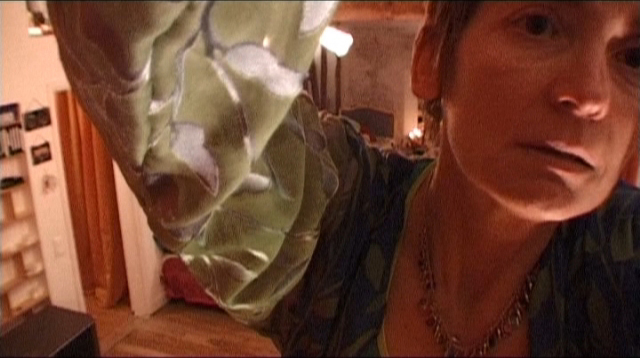
French filmmaker Francoise Romand debuted in 1986 with a remarkable documentary called Mix-Up ou meli-melo. In telling the story of two English families whose lives were tangled by fate when their babies were inadvertently switched at birth, Romand used a number of striking visual and structural techniques to evoke the psychological and class elements of the situation. Her strategies involved engaging the families as performers in telling their own stories.
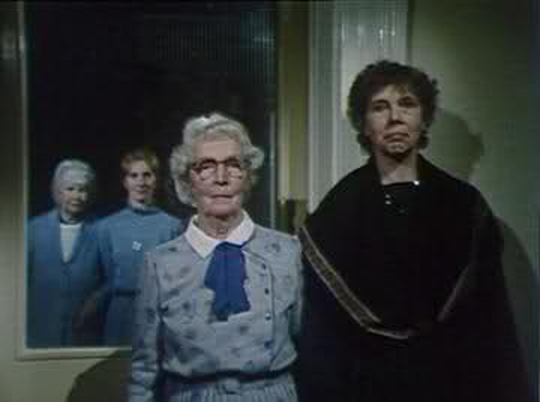
The following year, Romand made Appelez-moi Madame (Call Me Madame) (1987), another remarkable documentary, this time telling the story of Jean-Pierre Voidies, former Resistance member, communist activist and poet, who at 55 underwent a sex change to become Ovida Delect. She continued to live in a small Normandy village with her former wife, now companion, Huguette and their teenaged son Jean-Noel; her new identity was accepted by some, rejected by others. Again, Romand enlisted the people involved as character-participants in the story being told, even including a visual fantasy Ovida had of running on a beach between sea and sand wearing a flowing wedding dress. In fact, in a supplement on the Appelez-moi Madame DVD, Romand confesses that certain scenes in the film were constructed in a way to deliberately present an image of Ovida which was not strictly true, in order not to make her appear in the more traditionally “male” role in the relationship with Huguette. In one scene, where Ovida prepares glasses to offer the entire film crew a drink, Romand manages to include a sense of awkwardness and unfamiliarity which undermines this “hostess moment”.
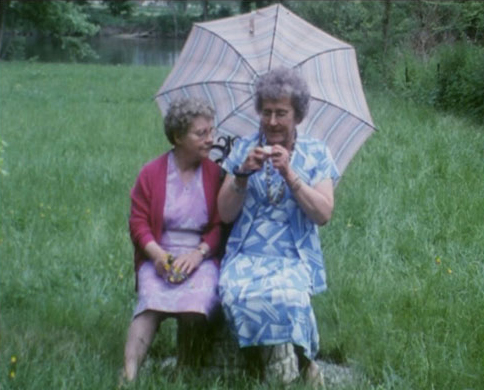
What is most distinctive about these early films is Romand’s free mixing of documentary and fiction techniques to tell these true stories of unusual people’s lives. In fact, she has at times faced criticism for not maintaining some strict “objective detachment” from her subjects, rather than engaging them as complicit participants in the creation of their own stories. But while what she does may not adhere to some puritanical rule of documentary detachment, the results, as critic Jonathan Rosenbaum has commented, are narratives which are “as densely packed as a 500-page novel.”
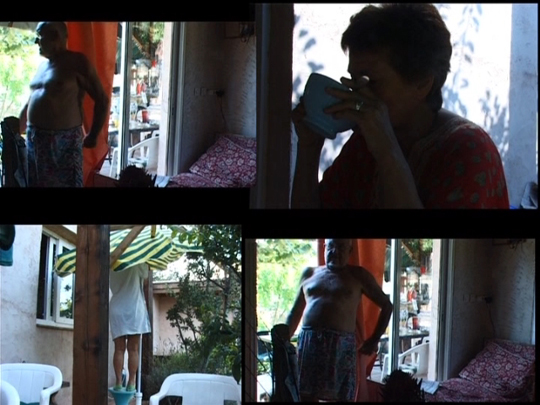
All of this background may be necessary when approaching Romand’s most recent film, Theme Je (The Camera I, 2004-2011), just released on DVD by Microcinema. Beginning in 1999 without a clear idea of where she might be going, Romand started turning the camera on herself, gradually evolving a self-portrait around the time she went to Harvard as a visiting professor of film, later returning to France where she put her beloved Paris apartment up for sale in order to finance an Internet project she was developing.
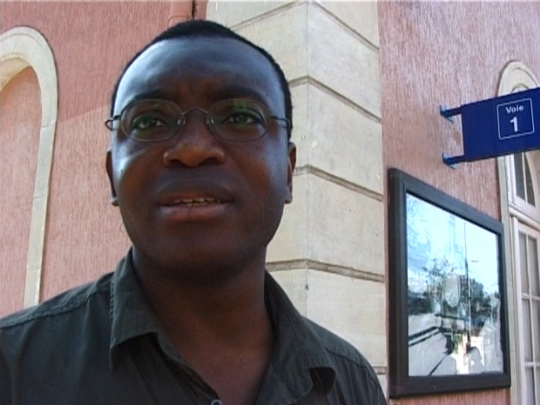
Theme Je at first seems like a rather ragged, formless video diary, lacking in the striking formal techniques of the earlier documentaries, looser and more exploratory. But the nature of that earlier work leads the viewer to question what is being revealed, to wonder how casual it really is or whether the filmmaker is constructing and fictionalizing this self-portrait.
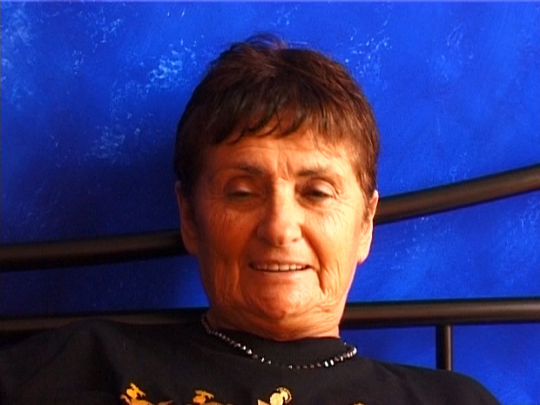
What we see is a woman who has emerged from a vigorous, almost chaotic immigrant family, her maternal grandparents having been caught up in the Armenian genocide following the First World War. Her uncle tells the story of his father’s murder, of being separated from his mother and shipped away; pure chance reunited him with his mother several years later, with Francoise’s own mother being born years after that.
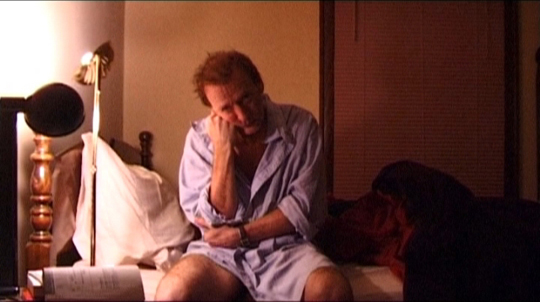
Romand herself speaks at one point of her interest in the subjects of her films arising from her own family situation, of the fact that she and her sister had two separate fathers, and that she felt so bad for her sister not having her father around that she, Francoise, rejected her own father in order to share that sense of deprivation. Expanding on this theme, she wonders whether her own tendency to have two lovers at any one time might be rooted in some need to have a child whose father is unknown.
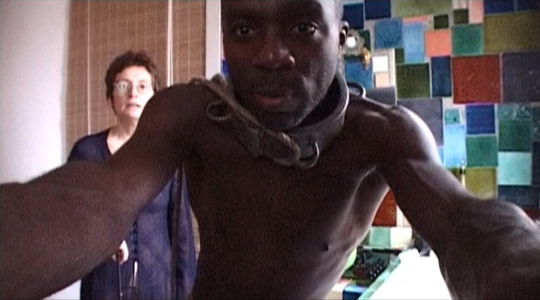
Theme Je is loosely structured around Romand’s relationships over several years, beginning with Jean-Pierre, a black man she takes home to her family for a vacation. The lengthy, chaotic sequence in La Ciotat is overloaded and sometimes grating, using split screen and multiple images with overlapping, conflicting soundtracks to evoke both the energy of the family and what feels like the threat of being overwhelmed by it. In the end, waiting at the train station, Jean-Pierre expresses irritation and accuses Romand of selfishly trying to impose her own wishes on him, forcing him to do things he didn’t want to do … and he disappears from her life for the next year and a half.
At Harvard, Romand moves in with a man named David, but also becomes involved with a younger man named Travis. Back in Paris, she plays sexual games with a younger black man named Jose, whose fantasy is to play the servant for an older middle class white woman. Throughout the film, there is a casual, unselfconscious approach to nudity and sexuality, culminating in a lengthy monologue, delivered while in bed naked with David, about a recent experience Romand had with a doctor which involved discovering habitual, unconscious behaviour which called into question her own self-awareness. Although the anecdote itself (involving cracked fingernails and a bidet) is of no real significance, the underlying realization arising from it, about blindness to aspects of ourselves, emerges as the film’s main theme.
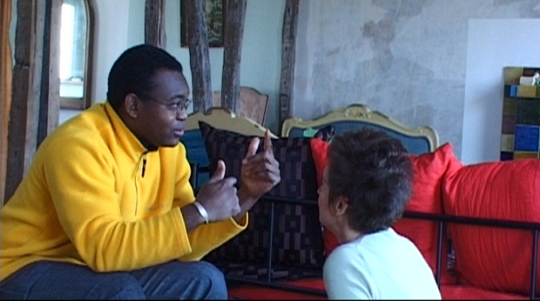
Immediately following this sequence, Jean-Pierre reappears after a year and a half and haltingly explains something about his own limitations, the roots of his anger (an incomplete story about his father and standing by, detached, when his father made a mistake). He concludes that resolving conflicts is as much about coming to terms with ourselves as it is about finding peace with others.
In looking at other lives in her earlier films, Romand was able to shape the material using vivid and imaginative formal techniques; but in examining her own life, she’s not looking back over a story which has already occurred. Theme Je is an active process of exploration, full of tangents, ragged artifacts, incomplete threads and glancing encounters with other people. Not so much a story as a life actively being lived, full of chance and self-dramatization – Francoise Romand’s journey towards becoming comfortable in her own skin. As a filmmaker, she is too individual and idiosyncratic to fit into any recognizable category, but that in itself is enough reason for her work to be better known than it is.
Micromedia’s DVD also includes Romand’s first film, a student project which already contains elements of her distinctive style. Rencontres (Intersections, 1977) is a short portrait of a working class artist, a painter who makes his living in a provincial steel mill. Romand presents several dramatized scenes with actors playing the artist and the people he visits on a trip to Paris, and combines these with images from the blast furnace and an interview with the artist about the conflicts between a working life and artistic sensibilities.
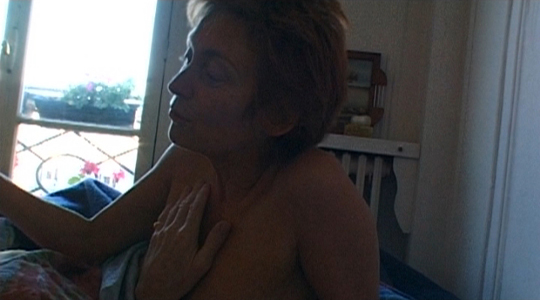
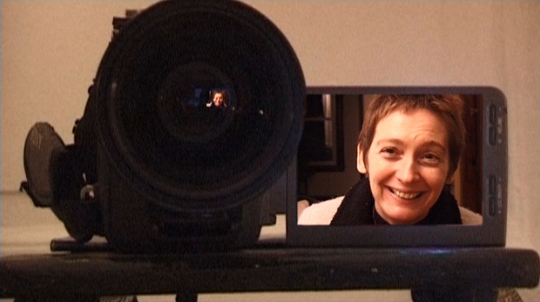
Comments